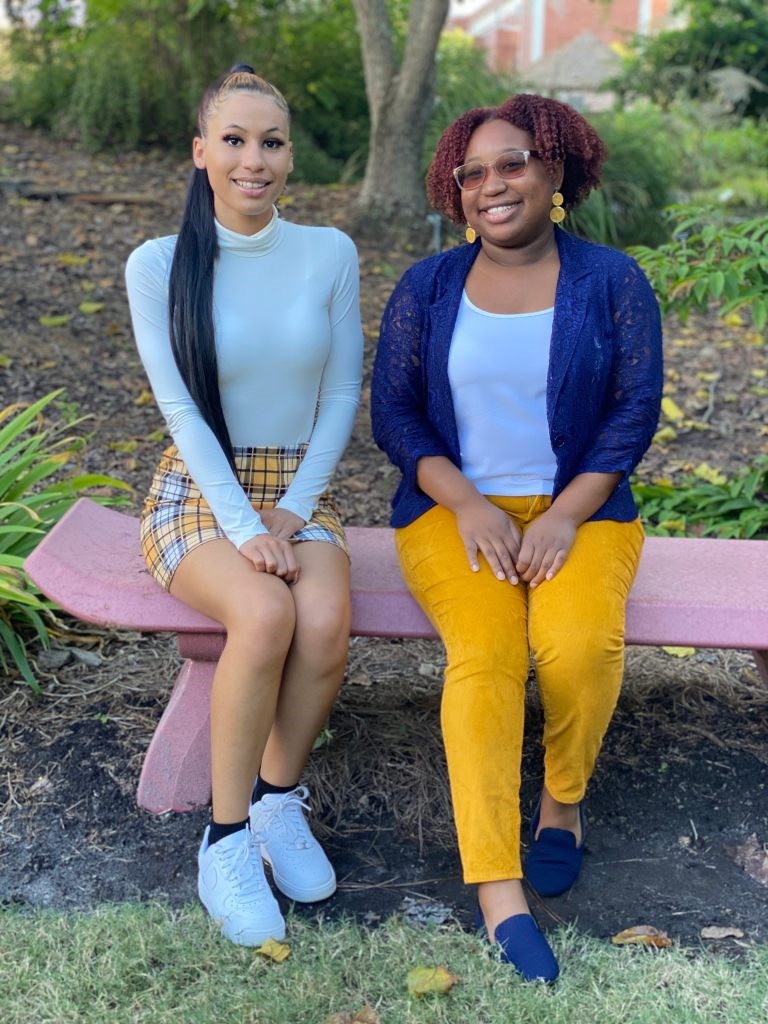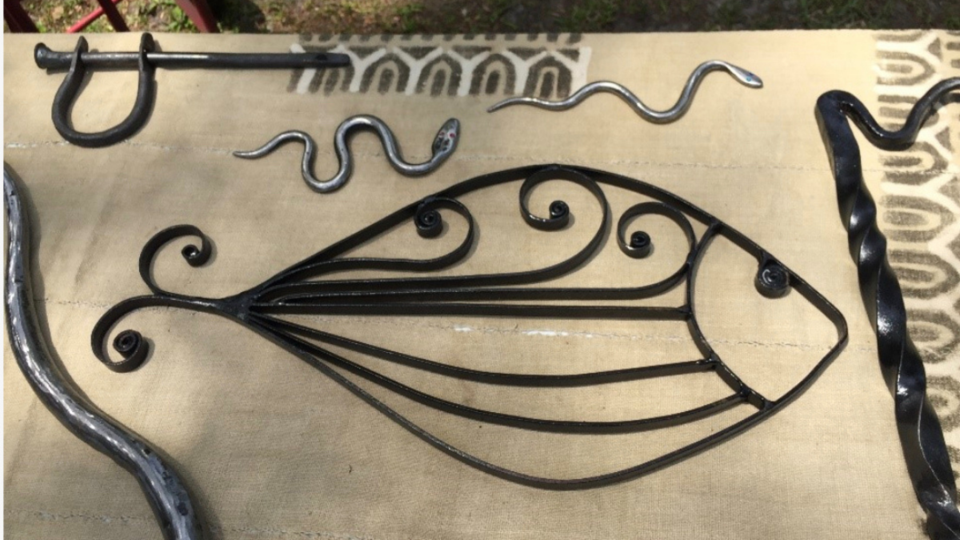The collective cultural memory of the Gullah Geechee people, descendants of enslaved West Africans who inhabited the barrier islands of Georgia, South Carolina, North Carolina and northern Florida, has survived through oral histories and distinctive arts, music, dance, foodways and language.
However, few within the Gullah Geechee community today, which is estimated to be a population of 1 million, can speak the African Creole language or tell the stories of their ancestors who are credited with influencing southern and American culture.
In response, Georgia Southern University has established the Gullah Geechee Cultural Heritage Center to aid in the preservation of this fluctuating culture, honor the myriad contributions made by Gullah Geechee people and provide educational resources for faculty, students and the surrounding community.
“The purpose is twofold,” said Maxine Bryant, Ph.D, director of the Gullah Geechee Cultural Heritage Center. “We want to increase awareness about the Gullah Geechee culture and to celebrate it. We want to allow a space for the Gullah Geechee community to come together and problem-solve.”
Approached by the Office of the Provost about opening the Center on the University’s campus in Savannah, Bryant jumped at the chance.
“I’m delighted to have Dr. Bryant serve as the founding director of the Gullah Geechee Cultural Heritage Center,” said Carl L. Reiber, Ph.D., Georgia Southern’s Provost and Vice President for Academic Affairs. “Her expertise, enthusiasm, and strong community connections will be tremendous assets as she establishes the Center and Georgia Southern University as leaders in the preservation, education and promotion of Gullah Geechee culture and heritage.”
Bryant’s interest in Gullah Geechee culture piqued after going on several local tours with Georgia Southern professor and cultural historian Amir Jamal Touré, J.D., who is also the resident scholar for Geechee Kunda Cultural Center and Museum in Riceboro, Georgia.
Bryant asked Touré to join forces and together they helm the Center with assistance from a nine-person advisory council that includes master storyteller and Gullah Geechee advocate Pat Gunn, as well as various University members.
As a community anchor that connects the past and present through interaction and outreach across generations, education is key.
Beginning this fall, the Center will host monthly community meetings to allow the Gullah Geechee community to discuss pertinent topics, such as land inheritance and preservation of public space that is at risk as sacred ground.
Bryant is also excited about a collaboration with history professor Michelle Haberland, Ph.D., and her students, who are collecting local Gullah Geechee oral histories this semester.
“We have identified about 14 elders in the Gullah Geechee community who have agreed to be interviewed,” said Bryant. “The students will edit and archive all of their interviews. It’s a way of preserving the stories, educating and increasing awareness.”
One interview already conducted features 96-year-old Sgt. John White, the last living member of the original nine Black police officers sworn in the Savannah Police Department in 1947.
“He knew George Washington Carver,” Bryant shared. “He used to take him and his siblings around Alabama and was a good friend of the family. So we capture so many stories like that. It’s been awesome.”
The Center also has a presence on the Statesboro Campus within the Department of Africana Studies. Bryant and her team are also designing a curriculum with the College of Education that is centered in Gullah Geechee culture for teacher training. There will be opportunities for professional development for public school teachers, employers and other entities with similar curriculum.
The Center is designated as part of the Gullah Geechee Cultural Heritage Corridor, which stretches across 27 counties in Georgia, South Carolina, North Carolina and Florida and was established by the U.S. Congress to recognize the unique culture of the Gullah Geechee people.
Students awarded first scholarships from Gullah Geechee Cultural Heritage Center
Two $2,500 Gullah Geechee Cultural Heritage Center Social Justice Scholarships funded by the Quarterman & Keller Foundation Inc. have been awarded to Georgia Southern University political science major Rachal Phillips and elementary education major Leah Mikell.
The students’ research, which will examine the effects of a Eurocentric education system on the Black community and why many Black Americans are not aware of the Gullah Geechee community, respectively, will be presented at Georgia Southern’s Research Symposium in April 2022.

“The Gullah Geechee research scholarship is important to me because I want to bring much-needed attention to the Gullah Geechee community,” said Mikell, who is from Savannah. “The Gullah Geechee have unique roots on U.S. soil. The examination of the community will provide new knowledge of the African community and culture in the U.S. and will also provide awareness to the Gullah Geechee of their overlooked community.”
Phillips, who is from Covington, Georgia, finds the opportunity doubly compelling.
“The research scholarship is important to me because while it is an honor to receive it, it also challenges and inspires me to learn more than I have before about those around me,” she said. “It is also important to me because due to being a first-generation college student, I feel like there are so many first-time accomplishments that I want to experience, this scholarship being one of them.”
Gullah Geechee Cultural Heritage Center director Maxine Bryant, Ph.D., hopes this inaugural scholarship will be the first of many opportunities to support underrepresented students and promote research of the Gullah Geechee culture.
“We are excited to be able to offer this scholarship that is made possible through the donation of the Quarterman & Keller Foundation,” said Bryant. “The financial benefits of the scholarship are obvious. However, the benefits are more than financial. This scholarship creates an avenue to further expose students to Gullah Geechee culture; it highlights the value of studying Gullah Geechee culture; and it demonstrates our commitment to the Gullah Geechee community. The Gullah Geechee Cultural Heritage Center is not a fleeting endeavor. We are here to stay and are committed to supporting and promoting the legacy of the Low Country Gullah Geechee community.”
Quarterman & Keller Foundation is committed to promoting scholarship in Gullah Geechee communities and serves as an example of how reparations can work for the betterment of the Gullah Geechee community and the descendants of slave owners. Sarah Eishner, a descendant of the Keller Family, who owned land and enslaved Blacks, recently launched an extensive effort to locate descendants of the family enslaved by her ancestors. She found Randy Quarterman, a descendant of that family, who joined her in forming the foundation.
Georgia Southern’s Gullah Geechee Cultural Heritage Center is designated as part of the Gullah Geechee Cultural Heritage Corridor, which stretches across 27 counties in Georgia, South Carolina, North Carolina and Florida and was established by the U.S. Congress to recognize the unique culture of the Gullah Geechee people.




